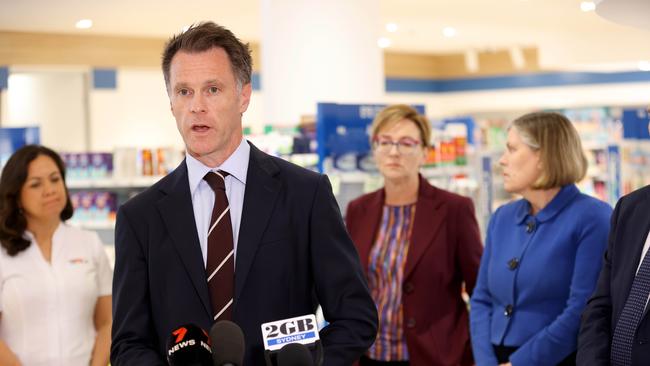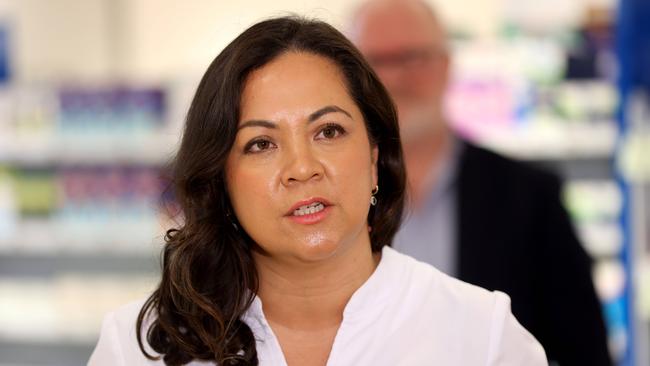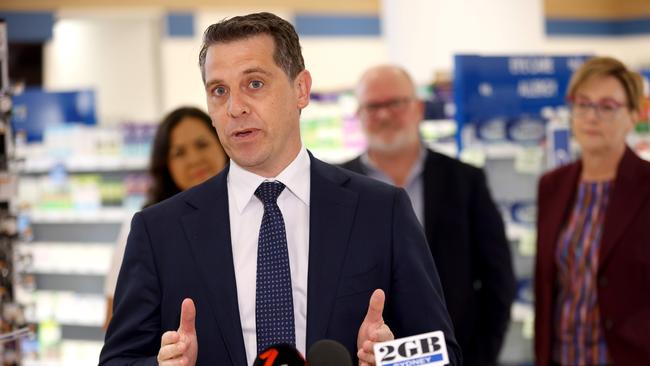NSW women gain better access to contraceptive pill
Women living in one Australian state will have better access to a vital service from Saturday in a move described as a “real win” foe women.

Sexual Health
Don't miss out on the headlines from Sexual Health. Followed categories will be added to My News.
Women living in NSW will now have better access to the contraceptive pill without having to visit their doctor to refill their script.
From Saturday, trained NSW pharmacists will be able to offer women who have used oral contraception for the last two years the pill.
It comes after a 12-month trial in which more than 500 pharmacies delivered more than 2000 consultations to women in NSW.
Women who have used oral contraception for the past two years and require a script refill will be able to get a supply for up to 12 months from a trained pharmacist without having to visit their doctor for a prescription.
The NSW government will also expand the age eligibility criteria of the service from 18-35 years old to 18-49 years old so women aged between 40 and 49 years will be able to access supply for up to three months.

Premier Chris Minns said people across NSW were doing it tough and cutting back on essential healthcare because of affordability.
“This trial has been a huge success, and now we’ll make it permanent – women who are eligible will be able to go to their pharmacist to renew an existing script,” he said.
“At a time when seeing a GP can be difficult, we hope that this service will make it a little bit easier for women to access affordable health care where and when they need it.”
Minister for Women Jodie Harrison said women’s timely access to quality health services, their health needs and sexual and reproductive health was a priority for the NSW government.
“Making the trial permanent is a real win for women in NSW, who, if eligible, can now access the contraceptive pill at their local pharmacy. It not only increases accessibility, it saves time and GP costs for busy women in our state,” she said.

Pharmacy Guild of Australia NSW Branch senior vice-president Catherine Bronger said with GPs stretched, community pharmacists had provided thousands of women with repeat prescriptions of the oral contraceptive pill under the NSW government’s trial.
“Making the availability of the pill at community pharmacies is the right thing for women and our communities,” she said.
Under the NSW Pharmacy Trial, pharmacists have retrained across three areas of healthcare to provide patients in their communities with more services without the need to visit their GP.
Since May, 3300 pharmacists have provided more than 18,000 consultations to women aged between 18 and 65 years with symptoms of uncomplicated urinary tract infection (UTI).
The UTI service transitioned to usual pharmacy care from June.
A trial allowing pharmacists to treat minor skin conditions is also under way and will run until next year.
Once the trial is complete, a NSW Health evaluation will decide whether services provided by pharmacists will be expanded in the future.

Health Minister Ryan Park said it had been amazing to see more than 1000 pharmacists across the state sign up to take part in each of the trial’s three phases so far.
“Earlier this month, the NSW government announced thousands of people across NSW will in the near future be able to access treatment for ear infections, wound management, gastro, acne, muscle and joint pain at their local pharmacy, boosting access to fast, convenient health care across NSW,” he said.
“By empowering pharmacists to undertake consultations for these common conditions and medications, we can help improve access to primary care services which will relieve the pressure on the state’s busy GPs and our hospital system.
“We are working with the Pharmacy Guild of Australia and Pharmaceutical Society of Australia to ensure pharmacists have the support they need to continue delivering best practice and connected primary care.”
Pharmaceutical Society of Australia NSW president Luke Kelly said pharmacists across NSW continued to show that they could do more to support their patients.
“Giving our patients the option to access contraception through skilled community pharmacists is an important step in making reproductive care more accessible to women across the state,” he said.


